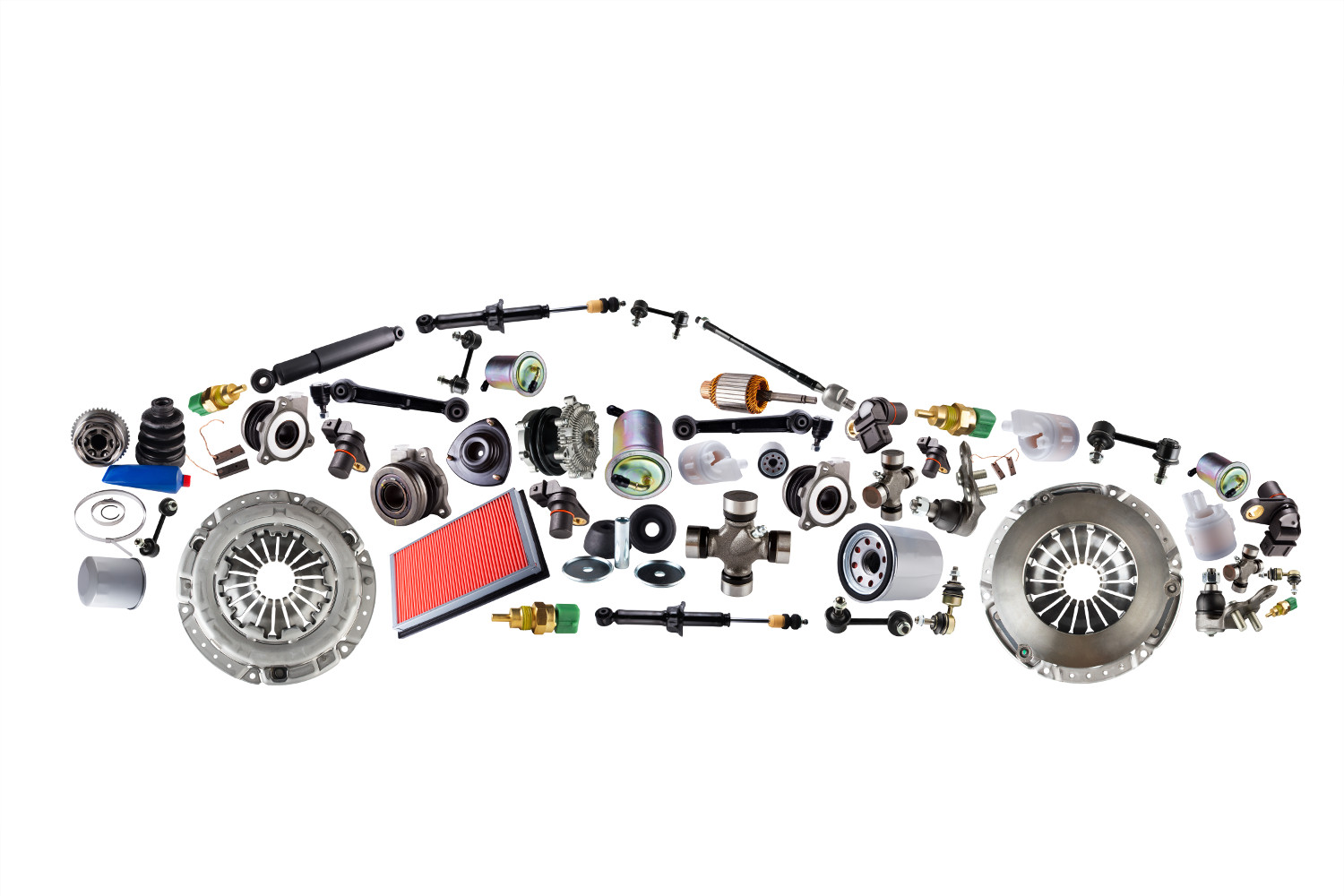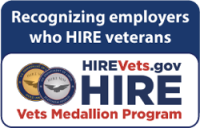By James E. Guyette

Aftermarket Business World
Tamara Rabenold is a licensed private investigator and CEO of Vaudra International, an investigation company specializing in intellectual property (IP) and corporate investigations. Previously in the marketing field, she transitioned into a career as a private investigator in 2004. Over the next 15 years and thousands of cases, she worked in every aspect of investigations, operations and management.
In addition to IP-related involvements through the Automotive Aftermarket Suppliers Association’s (AASA) IP Council and the International Trademark Association (INTA), she also is active within the investigative community.
In July she was appointed by North Carolina Gov. Roy Cooper to serve the investigative industry as a member of the Private Protective Services Board. The purpose of the 14-member board is to administer the licensing, education and training requirements for persons, firms, associations and corporations engaged in private protective services, such as private investigators and security guards within North Carolina. Prior to this appointment, she served on the Board for the North Carolina Association of Private Investigators (NCAPI) for more than three years, including being elected as President in 2018.
Rabenold recently answered a series of questions posed by Aftermarket Business World related to counterfeit auto parts:
How can a PI help a manufacturer?
There are effective ways to combat counterfeiting of your products, but you need the facts and supporting evidence first. Private investigators are a resource to gather this information in a factual, professional and unbiased way. Whether the investigation yields something to discuss with your attorney for civil remedies or there is the potential to pursue criminally, the private investigator helps facilitate the process and potential next steps.
Why hire a third-party investigator vs. using internal personnel to handle investigations?
While both can be effective, below are a few key advantages to hiring third-party investigators:
- Provides an unbiased perspective
- Have knowledge and understanding of best practices for the investigative industry/sector
- Limits your liability
- Easier to maintain your company’s anonymity when completing evidentiary purchases or when gathering sensitive information
- Secure evidence with chain of custody & storage protocol
- Access to information database resources that are only available to licensed private investigators and law enforcement.
What should I know when hiring a PI? Why should I hire an intellectual property PI?
As licensing and insurance requirements vary by state, you may want to verify that the investigator is properly licensed and insured. You also should check if the PI has applicable experience for your potential investigation. If you have a diesel engine, you probably want to take it to a diesel mechanic, right? Just like hiring a qualified and certified mechanic, you want to hire a qualified PI that specializes in that field as they will be more efficient and cost-effective in getting the job done.
What are the costs? Are lengthy contracts required to work with a PI?
Private investigators typically operate on an hourly rate, which varies greatly depending on location and expertise. When discussing a potential investigation, once we have a general understanding of your concerns and objectives, we will provide a cost estimate and outline proposed phases for the investigation as applicable. Although every case is different, we aim to establish clear expectations on both sides. We work with clients on a case-by-case basis, as well as long-term engagements.
What is Vaudra’s foundation?
Founded in 2003, Vaudra was started by two investigators with backgrounds in law enforcement and intellectual property investigations. Technology and the level of virtual access to subjects of investigation have changed dramatically since their IP investigations in the late 1990s and early 2000s. Back then, access to subjects was primarily done via facsimile, telephone and personal contact. You could count the number of experienced IP investigative companies on one hand, so clients were flying us across the country with little hesitation. Many of our company’s core philosophies established during that time remain the same: Eliminate costly surveillance, develop rapport and interact directly with the SOI (subject of investigation).
We are passionate about supporting our clients and providing valuable intelligence to bolster their business decisions & protect the brand’s integrity & Intellectual Property Rights (IPR). We develop customized investigative strategies centered on your objectives, conducting every investigation in a way that is ethical, legal and respectful of all parties’ constitutional rights.
Why the interest in the aftermarket?
Living in the heart of NASCAR country and surrounded by innovation, we were seeking a way to plug in when we learned of the Automotive Aftermarket Suppliers Association’s new IP Council. It presented an opportunity to not only help these companies protect their innovations & support an industry that impacts consumer safety.
What do you know about the aftermarket industry and auto parts?
We learn more with every case. Fortunately, it isn’t necessary for us to be experts in the aftermarket or auto parts to be effective. No one knows your brand, your parts or the industry better than you, and we become an extension of your team. Our expertise is investigations and gathering the evidence to support your decision and potential case related to the situation and parties involved. While we may need a quick lesson on your part-specific jargon, pricing tiers or number of units in a carton/case, we know the right questions to ask and the right time to ask them to uncover the facts.
How do you conduct these investigations into these parties, i.e. distributors, wholesalers, suppliers, bad guys, etc.?
Much of the beneficial information obtained during an investigation is through undercover means. We often start with background into the party involved to help determine the who and where, and move to undercover mode for the what, why, when, how many/much/often, etc.
We have legally established undercover companies for this specific purpose. The undercover dialog helps us understand the business operations and inevitably, we complete an evidential purchase during this process in most instances, which is a critical piece of evidence to support any potential action (criminal or civil).
Is that legal?
Yes, it is. Additionally, hiring investigators to work in such an undercover capacity is a practice that has been consistently endorsed by ethics authorities when the legal criteria for its use has been met. With investigations that reach into other states and countries, we also remain cognizant of related laws and regulations to ensure that our efforts will be admissible should the evidence be needed to support criminal or civil action.
You are based in North Carolina. How can you help with my counterfeit problems in New York, Texas California or overseas?
I wish we had a dollar for every time we’ve answered that question with results! Where we are physically located is unimportant. Through the virtual world, the WWW, apps and other communication channels, we conduct investigations into parties across the country and around the globe. Without the need or expense of travel, we obtain the necessary evidence from afar.
These methods have been our modus operandi for over 20 years, and is cost effective and efficient for our clients. At the point where a local presence is needed, we have a vast network of resources that we have developed through the years to support on-ground efforts (investigators, law enforcement, government agencies, counsel, etc…).
Are you retained by manufacturers concerned that their product is being counterfeited?
Yes, we are retained by manufactures or the trademark owner directly. In such situations, we often conduct the investigation to determine the facts to help them decide whether to consult their attorney for potential legal action. We also are hired by manufacturers’ outside counsel when they have a situation on which they need further evidence in order to properly advise their client of potential legal remedies.
Are you also retained by merchants concerned that they’re purchasing counterfeit parts?
Not typically – if a merchant suspects they are purchasing counterfeit parts, we find that they often contact the manufacturer directly (or indirectly) to try and verify it. When that happens, we may end up being hired by that manufacturer to investigate the potential supplier who was brought to their attention by the merchant.
Do most purchasers of counterfeit products know that they are buying counterfeit products? Or are many people fooled and flummoxed when they get the news?
This is a tough question as you can grow cynical in this line of work. There are reputable, online retailers of aftermarket parts that may complete a wholesale purchase priced too good to be true, sell it at retail and later learn that those parts were counterfeit. It happens, but there isn’t “intent” or “knowledge” of selling counterfeits.
With online access to suppliers worldwide, there is fierce competition for every purchase. It is easy enough for a counterfeiter to create a rogue website, bogus online profile or store that appears legitimate and is selling counterfeit goods to potentially fool an unwitting buyer.
As a merchant or wholesaler, it is critical to do your due diligence and purchase from authorized channels and legitimate sources. If you choose to ignore potential red flags and find a deal that seems too good to be true, you have to weigh the consequences to your business, reputation and customers if that product turns out to be counterfeit.
Are there certain types of parts that are counterfeited more often than others? (We hear a lot about airbags.) What are some common counterfeited parts?
Airbags have certainly garnered attention, especially since the consequences of counterfeits can be devastating. Although technically, airbags are not an aftermarket part. Generally, the parts that are most commonly counterfeited are those frequently repaired or involved in regular maintenance. A few examples include braking system components; filtration parts; wiper blades; spark plugs; bearings; fuel pumps; windshield glass; grills and emblems; headlights and taillights.
Why are some types of parts counterfeited more than others? What makes a good candidate/qualities for counterfeiting?
As in any business, it is supply and demand. Which parts wear out the fastest and need to be replaced most often? It also benefits the counterfeiter’s enterprise if the parts are more universal in nature and not highly technical or complex to mass produce seemingly functional copies.
Is most counterfeiting done by small operators in a decrepit garage located down a back alley? Or are there large factories that do this?
Both. We typically focus on large-scale counterfeiters. We are always looking for the ultimate source of the counterfeit products to cut the head off the snake, so to speak. Even if the initial tip may have started in a small garage when the mechanic installed a counterfeit part in a customer’s vehicle, we strive to work our way back to the supplier of the products and the manufacturer, whether based in the U.S. or overseas.
Do you have any case studies related to auto parts that you can share?
Because client confidentiality is paramount, case studies are usually sanitized. However, for the instance below, we obtained permission from our client and the manufacturer in order to share.
As a recent example – we worked closely with the firm, Edwin A. Sisson, Attorney at Law, LLC, on a patent infringement investigation for their client, ORACLE Lighting. When ORACLE Lighting learned of a Chinese trading company offering what they believed to be infringing versions of their patented Vector Grill, ORACLE was eager to take meaningful action. We were hired to investigate the Chinese entity in efforts to identify the supplier and/or factory involved.
After initial background, we established undercover contact with the subject to learn more about their operation. In the process of dialog and completing a sample buy of a grill, we built rapport with the subject and developed intelligence, which led to the disclosure of the potential factory’s location. Ultimately, these details were provided to on-ground investigators, which enabled them to locate the true Chinese factory producing the grills in question.
With careful timing and the combined forces of investigation, legal strategy and patented IP, ORACLE Lighting filed a lawsuit against the identified factory in China for alleged infringement of their Chinese Design Patent. **If interested in learning more or would like to see the design that we are fighting to protect, please visit Edwin A. Sisson, Attorney at Law LLC at SEMA booth #33222, and ORACLE Lighting at SEMA booth #21505.**
How can a manufacturer avoid having his/her parts counterfeited?
Ideally, make counterfeiting your product too challenging, risky and unprofitable for the would-be counterfeiter. Another tactic, disrupt the counterfeiter’s practices enough that they counterfeit someone else’s trademark. A manufacturer should be savvy about implementing strategies to make it difficult for fakes to be mistaken for genuine product and educating their customers on how to tell the difference and why to buy genuine.
For any such strategy to work, the first and most critical step is protecting that IP (trademarks, trade dress, copyrights and/or patents) by registering and recording it with the proper authorities (U.S. Patent & Trademark Office, Customs & Boarder Protection, etc…), so you have actionable, enforceable rights that you can defend in a court of law when/if needed.
How can a company determine if its parts are counterfeited and on the marketplace?
If looking for clues on whether you may have a counterfeit problem, here are a few ideas:
- Conduct searches for your brand, unique product names, part numbers, etc… on the WWW, domestic & foreign B2C eCommerce and B2B trade platforms to see what you find. Better yet, after a general web search, select to see the results as ‘Images’ and skim to see what appears suspect and where on the WWW it is posted.
- Check with your consumer affairs/complaints/returns and/or warranty departments on suspect items or reports that have been submitted. Have an SOP so that the department knows where to send or report those instances when they arise.
- Educate and listen to your assets (i.e. customer service & sales reps, distributors, accounts, customers, etc…) for tips and feedback from the field. Foster brand loyalty so that everyone is keeping an eye out for you. Monitoring social media is another way to do this if your company is active/responsive in these channels. When a tip comes in via whatever avenue, have an SOP so the information is funnelled to the right person for review, consideration and evaluation.
- Make test buys of suspect products to confirm authenticity (consider using an investigator if you do)
- If your part and/or packaging contains a trademark, register it with U.S. Customs & Border Protection at https://iprr.cbp.gov/. This is separate from registering your trademarks with the USPTO and required if you hope to have shipments of suspect product stopped at the border. If CBP locates a suspect shipment of parts bearing your trademark, they will detain and/or seize it (and you will be notified in most instances). If CBP seizes a shipment, DING! You may have a counterfeit problem.
- Perhaps at times cost-prohibitive, consider anti-counterfeiting technology for cartons and parts. As a side note, some of these technologies also have track & trace potential if you are dealing with unauthorized distribution. Serialize part cartons and parts. There are a variety of third-party vendors who offer options. Not all are created equal. Do your due diligence.
This article was first published online by Aftermarket Business World on October 6, 2019.



